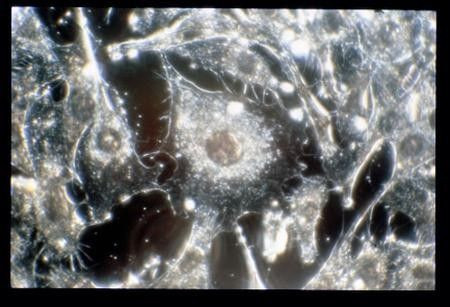Possibility Of Cure For HPV Positive Throat Cancer Patients—New Research

A new research conducted by Dr. Sophie Huang, assistant professor in the Department of Radiation Oncology, Princess Margaret Cancer Centre, University of Toronto, Canada revealed that throat cancer caused by the Human Papilloma virus, or HPV+, can be cured. The research is of utmost importance as it is the first to provide substantial evidence to prove that patients suffering from oropharynx cancer can be healed.
The disease also spreads to other parts of the body. The press release disclosed that the tumours remain passive and go undetected for over two years in most case, which makes it incurable. The research was presented at the 5th International Conference on Innovative Approaches in Head and Neck Oncology, or ICHNO, on Friday. She states that cure is possible among patients suffering from oropharyngeal cancer is possible for the first time.
"Our research, the largest study to date to explore survival predictors for metastatic HPV+ and HPV- oropharyngeal cancer patients,” says Dr. Huang. For the research, 934 patients suffering from HPV+ OPC were studied. All subjects were patients treated at the Princess Margaret Cancer Centre between 2000 and 2011. The researchers found two types of distinct metastases or tumours in other parts of the body away from the source in HPV+ patients: "explosive" and "indolent" metastases. The former grows and spreads quicker while the latter is slower and manifests itself as oligometastasis. However, they found the lung as the most common metastatic site in both HPV+ and HPV- patients. According to Dr. Huang, more aggressive treatments solely aimed at disease control resulted in a long term disease-free period, suggesting that some may be cured.
"In the HPV+ group with oligometases 25% were still alive after three years, whereas the percentage in the HPV- group was 15%," the press release stated. The reason for higher survival rates among HPV+ patients is the younger age of the patients. In addition, the cancer is more sensitive to radiotherapy and chemotherapy. Those who receive treatment are at an advantage and can survive longer than those who do not undergo the process. Early detection of metastases and aggressive treatment can cure the patient.
Dr. Huang explained that they were aware of the correlation between the initial stages and the risk of a tumour on another site of the body. However, the degree by which they are related remains unknown. She highlights that identifying such relationships could help find an appropriate treatment at an early stage.
Professor Jean Bourhis, co-chair of the conference scientific committee, says that this is a very important research with respect to finding the cure of oropharynx cancer. He states that it provides hope in both the treatment and diagnosis of the patients.
For questions/comments regarding the article, you may email the writer at richardson.samantha18@yahoo.in.





















